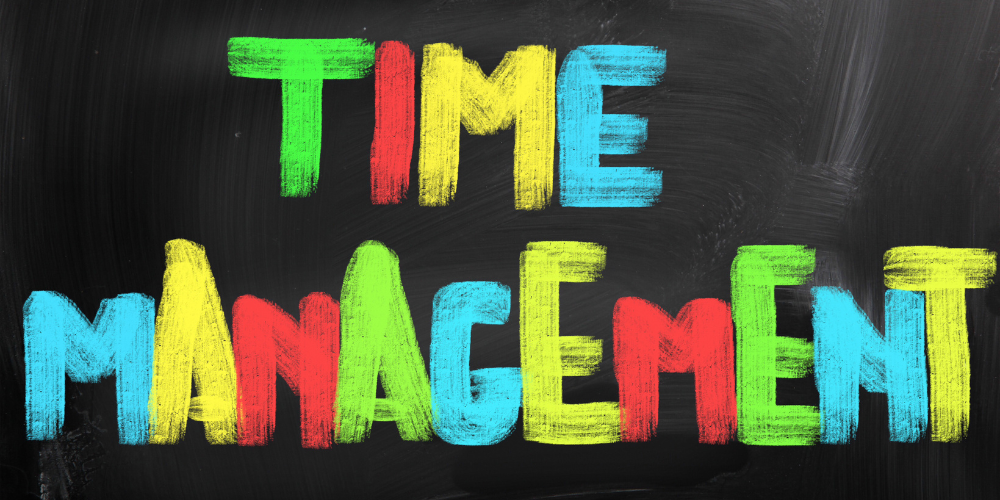When everything around us seems so fast-paced, we can feel like there is never enough time in the day. With work deadlines, family responsibilities, and socialising, there is hardly any time left for us to start something new. This is where successful time management comes in.
What is Time Management?
Managing your time is about more than fitting in as much as possible daily. It means making intentional decisions about how to invest your time and what you want to focus on. It’s the idea of interweaving through intention where you spend your most valuable resource—time—in order to live a rich, purposeful, and well-rounded life.
Why is Time Management Important?
Effective time management is paramount for a number of reasons:
- Reduced stress: Most feelings of stress come from the impression that we cannot control our time. Time management is about bringing some of that control back into your life, which in turn reduces stress and allows you to have peace of mind.
- Increased productivity: You can be productive, have more success and less time in everything you try to achieve by managing your priorities efficiently while eliminating distractions.
- Improved work-life balance: Time management helps you dedicate adequate time to all aspects of your life – work, family, personal pursuits, and relaxation – leading to a more balanced and fulfilling lifestyle.
- Goal achievement: Goals are one of the keys to being successful. By having a clear focus on where you are heading and pegging away at it over time, you increase your chances of success plus personal fulfilment.
- Enhanced well-being: Effective time management allows you to prioritise self-care, leisure activities, and activities that bring you joy, leading to improved physical and mental well-being.
Repercussions of Poor Time Management
Failing to oversee your time effectively can have significant negative consequences:
- Missed deadlines and poor performance: Procrastination and lack of organisation can cause missed deadlines, unfinished work, or underperformance on a job.
- Increased stress and anxiety: Being in a rush all the time can lead to chronic stress, anxiety and eventually burnout.
- Strained relationships: When you do not manage your time properly and correctly, personal relationships take a hit and create conflict and grudges.
- Missed opportunities: Failing to prioritise and plan can result in lost opportunities for personal and professional growth.
- Reduced quality of life: If you do not manage your time correctly, you may always feel stressed and unproductive and may miss many opportunities to enjoy life to the fullest.
Strategies for Effective Time Management
Now that we understand why time management is crucial let’s explore some practical strategies to help you master this essential skill:
1. Set Clear Goals: Define your personal and professional short-term and long-term goals. This will give you direction and purpose, helping you prioritise your time effectively.
2. Prioritise Tasks: Not all tasks are created equal. Use techniques like the Eisenhower Matrix (urgent/important) to recognise which tasks require immediate attention and which can be delegated or deferred.
3. Plan Your Day: Plan your day for a few minutes each morning or the night before. Create a to-do list, schedule appointments, and allocate time for specific tasks.
4. Break Down Large Tasks: Are you daunted by a project? Break it into smaller tasks. This breaks the project into smaller, more manageable sections, and you can see your progress much more easily.
5. Eliminate Time-Wasters: This includes tasks such as overusing social media, attending unnecessary meetings, and trying to do too many things at the same time. Reduce or remove these time killers to allow more focused time for important tasks.
6. Learn to Say No: It is alright to say no to a request or commitment if it does not align with your values or you simply do not have the time for it.
7. Delegate When Possible: Be bold and delegate tasks to others at work or home. This frees up your time to focus on activities that require your specific expertise or attention.
8. Use Time Management Tools: Use calendars, planners, to-do apps, or any other time management tool to organise and get your things done.
9. Schedule Time for Yourself: Remember to make time for yourself and the things you like. Exercise, read, engage in hobbies, and spend quality time with your loved ones.
10. Review and Adjust: Regularly review your time management strategies to determine what is working and what is not. Stay adaptable and be prepared to pivot.
Time Management and Personal Goals
The main point of good time management is to get things done and achieve your personal goals. Whether it is learning a new skill, writing that book, finally starting that business you have always dreamed about, or just spending more time with your kids, better Time Management structures make it easier for you to achieve these dreams.
How to Implement Personal Goals into Time Management Here are a few ways you can incorporate personal goals into your time management plan:
- Identify your passions: List down what you are passionate about —What do you love doing? What are some things that you love to do or that light up your face with joy and that give you fulfilment?
- Set realistic goals: Divide your bigger goals into achievable mini-goals.
- Schedule dedicated time: Allocate specific time slots in your schedule for working towards your personal goals.
- Track your progress: While you are at it, Track your progress. Keep a check on how far you have come and celebrate the milestones.
- Be patient and persistent: Achieving personal goals takes time and effort. Don’t get discouraged if you don’t see results immediately.
Conclusion
Time management is not something you will ever master properly. The skill of time management is a constant journey rather than an end-point. It takes awareness, discipline, and the ability to evolve. By applying these techniques, you can wrestle back some of your time and mind-numbing stress levels to design a life that is productive and content. Therefore, keep in mind that time is your most precious resource; spend it well.
Having a good time management strategy will open the gates of your time, reduce stress levels, and almost achieve goals, hence achieving a more fulfilled and balanced life. Remember, time is your most valuable resource—spend it wisely!
Disclaimer
This blog serves as a general guide to performing the quantitative risk assessment and does not provide professional advice. Bringing the strategies and tips in this blog to your own every day can be beneficial for most people, but still, all of our circumstances are different. If you are having time management or related problems, I recommend that you seek guidance from a professional because everyone is unique and needs psychological help in different ways.


